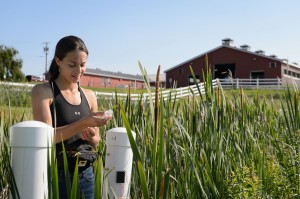
This level of detail will show the reviewers you have carefully structured your project. Account for your planned enrollment in summer coursework, participation in study abroad programs, and/or any other substantial commitments in your timeline. All weeks of summer research must be completed between May 6 and August 23, 2024.
The standard SURF timeline involves working on your project 40 hours/week for 9 weeks (or 35 hours/week for 10 weeks). However, the weeks need not be continuous, and you might elect to work fewer hours per week if that would be more appropriate to your particular situation. If you commit to fewer than 350 total project hours, your stipend amount will be prorated.
There are many different ways to present a timeline; three good examples follow below. Remember that your proposal, timeline, and budget should work in concert to demonstrate the feasibility of your project.
EXAMPLE #1
Timeline – Jane Husky
Total project hours – 350. Work week: Mon-Fri, 9am-5pm (35 hrs/week for 10 weeks). I will have weekly lab meetings with my advisor to track progress and troubleshoot any major issues. I will also be consulting regularly with graduate students in the lab working on related projects.
| Week | Dates | Hours | Task Description |
|---|---|---|---|
| 1 | May 23 – May 27 | 35 hours | Training on new microscope. Synthesize experimental samples with varying ratios using multiple synthesis approaches (as summarized in Figure 2 in proposal). |
| 2 | May 31 – June 3 | 35 hours | Characterize samples using x-ray diffraction (XRD) and scanning electron microscopy (SEM). Analyze data to identify optimal synthesis method. |
| 3 | June 6 – June 10 | 35 hours | Repeat the optimal synthesis method across the ratios and characterize the samples. Compare these results to the first round of samples. |
| 4 | June 13 – June 17 | 35 hours | Synthesize samples doped with iron, copper, and nickel. |
| 5 | June 20 – June 24 | 35 hours | Characterize the new samples. Repeat synthesis as needed for unusable samples. Collect and analyze conductivity data. |
| 6 | June 27 – July 1 | 35 hours | Dope samples with a combination of iron, copper, and nickel. |
| – | July 4 – July 8 | 0 hours | Vacation (no work) |
| 7 | July 11 – July 15 | 35 hours | Characterize the new samples. Repeat synthesis as needed for unusable samples. Collect and analyze conductivity data. |
| 8 | July 18 – July 22 | 35 hours | Synthesize best samples from previous experiments on copper bases (varying shape and thickness). |
| 9 | July 25 – July 29 | 35 hours | Characterize the new samples. Repeat synthesis as needed for unusable samples. Collect and analyze conductivity data. |
| 10 | August 1 – August 5 | 35 hours | Prepare summary data analysis and description of optimized procedure. Draft poster for Frontiers. |
EXAMPLE #2
Timeline – Jonathan Husky
Work weeks will be 5 days per week (Mon. – Fri.) at an average of 25 hours per week, totaling approximately 400 hours.
In accordance with the policies of the Institute of Materials Science, I will not be working in the lab in the absence of supervision from either a graduate student or instructor.
EXAMPLE #3
Timeline – June Husky
I will remain in regular touch with my advisor, Professor Cross, throughout the summer. We have scheduled weekly Skype calls for the time I will be in Brazil and biweekly meetings on campus upon my return. Project hours: 350 hours total.
Interested in applying for a 2025 SURF Award? Plan to attend one of the upcoming information sessions:

Emily McInerney '15 (CAHNR), a 2014 SURF recipient, studied the greenhouse gas production of wetlands. Learn more in the UConn Today story about her work.
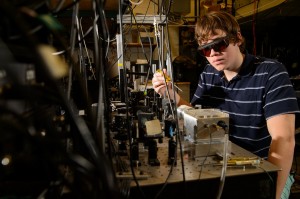
Michael Cantara '16 (ENGR) studied the formation of ultracold Rb3 molecules with his 2014 SURF Award.
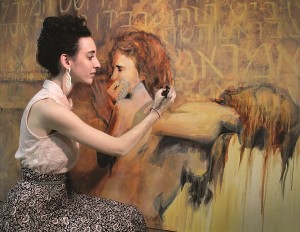
Julianne Norton '16 (CLAS) used her 2013 SURF Award to create artist's books that engage ideas of postmemory and identity.
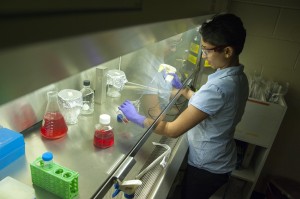
Kimberly Rebello '15 (CLAS) received a 2014 SURF Award in support of her study of the C8 and N2 deoxyguanosine adducts induced by the carcinogen 6-nitrochrysene.
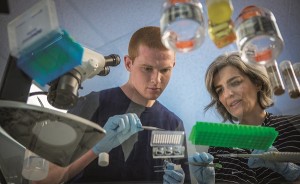
Patrick Lenehan '15 (CLAS) studied the role of RNA transcripts in the formation of centromere complexes in Drosophila with a 2014 SURF Award.
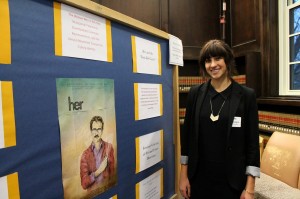
Giorgina Paiella '16 (CLAS) received a 2014 SURF Award for her project examining the bodiless female character in the Spike Jonze film Her, which situated the film within debates and theoretical explorations central to philosophy, gender studies, science fiction narratives, and film theory.